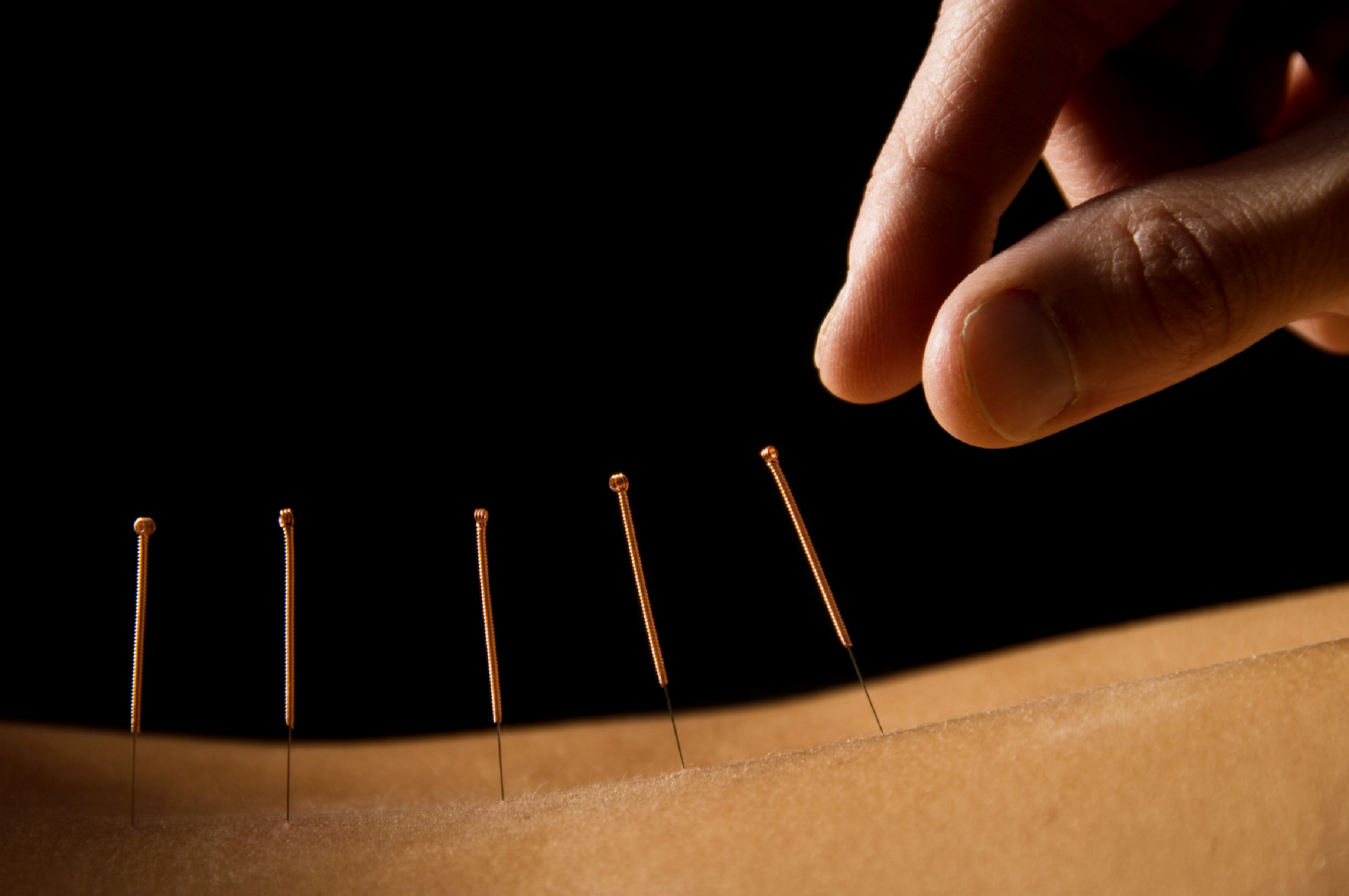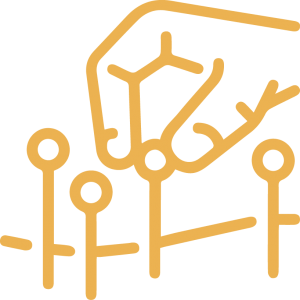by Dr. Emilie Beaulieu, ND
People are often surprised when they learn that acupuncture is part of my naturopathic practice. Did you know: Naturopathic Doctors (NDs) are trained for 4 years in the art and practice of Traditional Chinese Medicine (TCM), and one component of this modality is acupuncture? Acupuncture is one of my
When it comes to acupuncture, there are two lenses through which we can evaluate and correct imbalance or dysfunction, the Eastern approach or the Western approach.
TCM/Eastern Approach
To give you a very simplistic overview of a much more complex medical system, a component of TCM is based on the 5 elements theory. This includes the elements of Fire, Earth, Metal, Water
Fire
Heart // Pericardium // Small intestine // Triple Warmer
Earth
Spleen // Stomach
Metal
Lung // Large intestine
Water
Kidney // Urinary bladder
Wood
Liver //

Each organ has its own meridian or energy channel via which different acupuncture points are connected. By accessing carefully selected points using special acupuncture needles (AKA “needling”), we aim to correct imbalances that often manifest in symptoms, and ultimately disease. When the elements and organ meridians are in harmony with one another, there is
Stagnation of Qi and Blood are pathologies commonly caused by stress, which as we all know is pervasive in our society. Many of us cannot imagine a single day without significant stress. Qi or Blood stagnation can lead to many health issues, depending on which organ or meridian is being impacted. One of the most common symptoms is
Acupuncture points are carefully selected based on each individual’s presenting symptoms. As there are hundreds of points to choose from, you can appreciate how intensive this process can be, resulting in a different combination for nearly every patient a practitioner sees. It is truly a custom approach, and not
Musculoskeletal (MSK)/Western Approach
Through this lens, the practitioner considers primarily the anatomical and functional interactions of joints, muscles, and fascia when selecting points to
My colleague and friend Dr. Michelle Jackson, ND wrote an article that does a wonderful job of summarizing the neuroscientific research on acupuncture during her time as an intern at the Robert Schad Naturopathic Clinic. You can read more HERE, but in summary:
- The location of acupuncture points is highly correlated with the path of large nerve bundles or endings and/or are associated with trigger points in the muscles – which are capable of causing significant pain
- Acupuncture can decrease pain signaling bi-directionally between the brain and the body, and decrease the sensation, awareness and/or emotional experience of pain by acting on the limbic system of the brain
- Acupuncture stimulates the body’s production of
pain relieving substances (opioids) creating an analgesic effect, and can impact several neurotransmitters (including serotonin and dopamine) – playing a complex role in pain modulation - Locally the needles increase blood flow– carrying nutrients and other messengers described above as well as anti-inflammatory molecules to specific treatment areas – thereby providing pain relief
So, you ask, which framework do I follow? I use a combination of both!
I consider a patient’s constitutional picture by reviewing their concerns and taking a complete health history including physical exams. Simultaneously, I choose local points by evaluating the functional patterns at play to provide patients with the greatest possible relief. While it is not a treatment I use in isolation, acupuncture is a great addition to many treatment programs and complements diet and lifestyle interventions as well as herbal supplementation beautifully.
Start your recovery TODAY!
FAQs
Does acupuncture hurt?
-
It should not hurt, as the needles are quite thin (we’re talking 0.25-0.30mm typically).
However that does not mean that there is NO sensation associated with acupuncture! We strive for you to feel something, in order to confirm that we have achieved optimal depth and positioning of the needles within the channels/points selected.Good sensations: heavy, dull ache – fades during treatment
Concerning sensations: sharp, shooting pains – that do not go away
What can acupuncture help with?
No matter which lens you view acupuncture through it is an extremely useful tool and can be indicated for so many conditions, some of which include:
- Headaches
- Musculoskeletal pain (joints, muscles)
- Anxiety – promoting relaxation and a calm mind
- Low energy, poor sleep
- Digestive distress: GERD, constipation, IBS
- Women’s Health – irregular menstrual cycle, painful periods
If you are interested in learning more about acupuncture, or even giving it a try, book an initial consult with me HERE and let’s get started!

Have more questions? Feel free to contact us!
References
Sims J. The mechanism of acupuncture analgesia: a review. Complementary Therapies in Medicine. 1997 Jun 1;5(2):102-11.
Lily C, Peng L, Cheng W. The Mechanism Of Acupuncture Therapy And Clinical Case Studie.
Wu MT, Hsieh JC, Xiong J, Yang CF, Pan HB, Chen YC, Tsai G, Rosen BR, Kwong KK. Central nervous pathway for acupuncture stimulation: localization of processing with functional MR imaging of the brain—preliminary experience 1. Radiology. 1999 Jul;212(1):133-41.
Sicuteri F, Rainò L, Geppetti P. Substance P
Sandberg M, Lindberg LG, Gerdle B. Peripheral effects of needle stimulation (acupuncture) on skin and muscle blood flow in fibromyalgia. European Journal of Pain. 2004 Apr 1;8(2):163-71.
Melzack R, Stillwell DM, Fox EJ. Trigger points and acupuncture points for pain: correlations and implications. Pain. 1977 Feb 1;3(1):3-23.
Goldman N, Chen M, Fujita T, Xu Q, Peng W, Liu W, Jensen TK, Pei Y, Wang F, Han X, Chen JF. Adenosine A1 receptors mediate local anti-nociceptive effects of acupuncture. Nature neuroscience. 2010 Jul 1;13(7):883-8.
Carlsson C. Acupuncture mechanisms for clinically relevant long-term effects–reconsideration and a hypothesis. Acupuncture in Medicine. 2002 Aug 1;20(2-3):82-99.
The information contained in this blog post has been developed for informational purposes only. It does not provide medical advice, diagnosis, treatment, or care. If you have a health problem, please book an appointment for consultation. Under no circumstances should you attempt self-diagnosis or treatment based on anything you have seen or read in this post.
